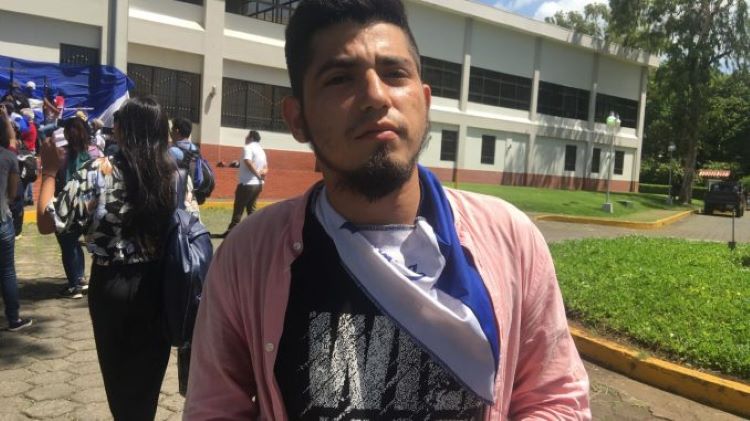Eduardo González
The Council of Ministers approved this past Tuesday the granting of Spanish nationality by letter of nature to a sixth group of seven Nicaraguan opponents expelled and stripped of their citizenship by the regime of Daniel Ortega, bringing to 90 the number of beneficiaries of this measure since last May 11.
At the proposal of the Minister of Justice, Pilar Llop, the Council of Ministers has granted the seven opponents the Spanish nationality by letter of nature, an exceptional and much faster procedure than the usual channels which prevents these people from prolonging their stateless situation for a long time.
As published yesterday in the Official State Gazette (BOE), the Government has granted Spanish nationality by letter of nature to Kevin Roberto Solís, university student, social activist and opponent; Lucía Agustina Pineda Ubau, journalist and co-director of 100% Noticias, political prisoner released from prison and expelled to Costa Rica; Pedro Salvador Vásquez Cortedano, 59 years old, driver of journalist and presidential aspirant Cristiana María Chamorro Barrios; Rodolfo Antonio Rojas Arburola, civil engineer, who in 2018 had to flee cross-country during the repression of roadblocks in Jinotepe; Roger Abel Reyes Barrera, lawyer, member of the Political Council of the opposition Unidad Nacional Azul y Blanco; Yaser Muhamar Vado González, kidnapped by the regime’s police on November 6, 2021, one day before the presidential elections in which Daniel Ortega won his fourth consecutive term; and Roberto José Soza Téllez, former director of the NGO Global Communities.
This new group joins the 46 Nicaraguans who obtained Spanish nationality during the month of May, the 29 who benefited from the same measure in mid-June and another eight who received citizenship on July 5. On May 11, the Government approved the nationalization of fourteen Nicaraguans, among them the sociologist Gertrudis Guerrero, wife of the exiled Nicaraguan writer Sergio Ramirez, who was already in possession of Spanish nationality. Also appearing in that first group were journalist Cristiana Chamorro, presidential pre-candidate who in the 2021 elections appeared as the candidate most likely to defeat Ortega; and journalist Carlos Fernando Chamorro Barrios, founder of the local newspaper Confidencial and son of former president Violeta Chamorro. On May 24, the list was expanded with fourteen other Nicaraguans, among them Desirée Elizondo Cabrera, wife of Carlos Fernando Chamorro.
On May 31, a third group of 18 Nicaraguans was granted nationality and on June 13, 29 more were granted nationality, among them a former Nicaraguan ambassador to the US (between 2007 and 2009, already with Daniel Ortega) and former presidential candidate, Arturo José Cruz Sequeira; former Foreign Minister Norman Caldera Cardenal (between 2002 and 2007, under the presidency of Enrique Bolaños) and the wife of former President Arnoldo Alemán (1997-2002) and former congresswoman María Fernanda Flores Lanzas. Finally, eight Nicaraguan dissidents obtained Spanish nationality on July 5, among them a former foreign minister and former vice-presidential candidate, Francisco Aguirre Sacasa.
On February 9, the Ortega regime expelled 222 opponents (diplomats, former state officials, human rights defenders, Sandinista dissidents, oppositionists, journalists, academics, students, businessmen and traders) accused of treason from the country to the US and stripped them of their nationality. After learning of the Ortega regime’s decision, the government of Pedro Sánchez offered to grant Spanish nationality to those declared “stateless” by the Nicaraguan regime. On February 16, Daniel Ortega decreed the withdrawal of the nationality and the seizure of the assets of another 94 opponents for the same reasons. The day after Ortega’s decision, the Spanish government extended its offer to this second group of 94 Nicaraguans. In addition to Spain, the governments of Chile, Colombia, Brazil and Mexico have also offered nationality to the regime’s “stateless persons”.







